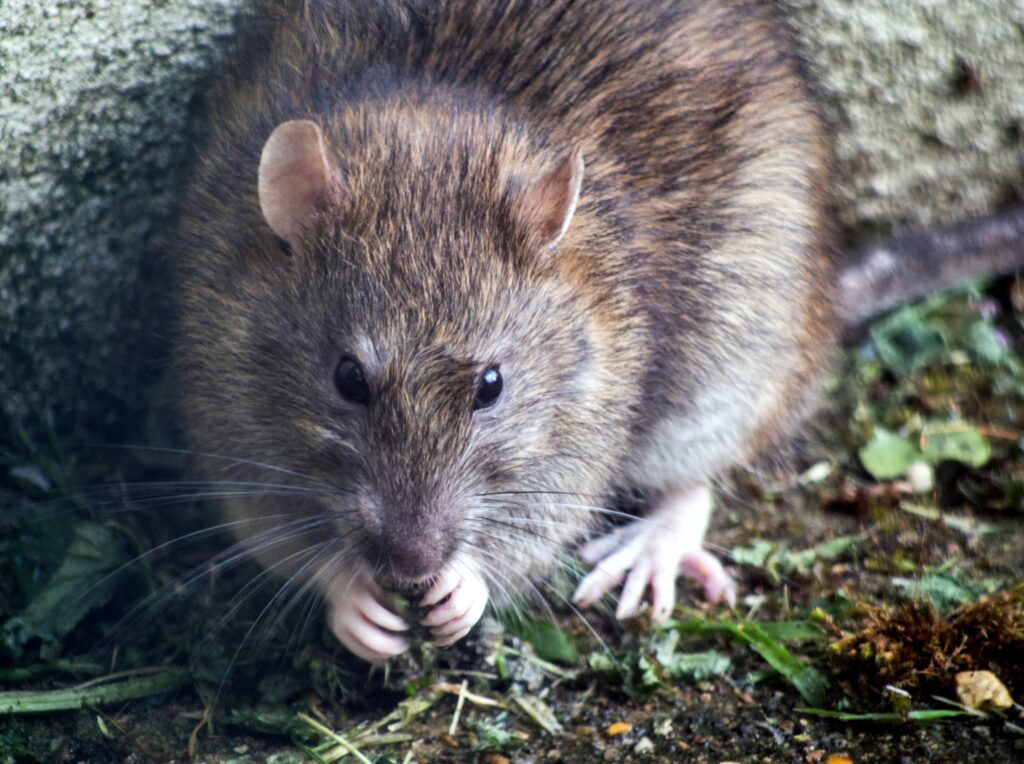
Cooler weather brings increased rodent activity around – and inside – our homes. This year is no different, in fact, many experts are predicting an increase in rodent activity over recent years.
Rodents have the capability of causing massive amounts of damage to your home, inside and out. Read on to discover the common types of damage, how they gain access to your home, and what to do about it.
Structural Damage
Rodents have sharp teeth that never stop growing. They are capable of chewing through a wide variety of materials such as wood, stucco, siding, and more. If they’re unable to find an easier way inside, they will gnaw their way in if they want in bad enough. Many times, however, they are able to find a path inside that offers very little resistance, such as the roof.
Once they make their way inside, rodents commonly tear up insulation, destroy wood structures, and other materials.
Electrical Damage
Rodents cause millions of dollars in damage to electrical systems in and around homes every year. On the exterior of the home, they chew through wiring that powers pool equipment, HVAC equipment, outdoor lighting, and irrigations systems, to name a few. They will even gnaw through wiring in your engine compartment of your vehicle.
The problem is even worse indoors. If wiring is in their way, they will chew through it, or they may be attracted to it due to the heat it gives off. They may strip the protective casings away from electrical components that may result in serious safety issues, including potential fire hazards.
Damage to Living Spaces

Rodents tend to travel along walls or edges, leaving behind a greasy, oil-based residue so they can take the same path back. They also leave urine, feces, bacteria, and viruses along the way. They contaminate all surfaces of your living spaces, including floors, furniture, countertops, fixtures, and more.
Food Damage
Once rodents infest a home, they will search for food and water sources. When they find it, they will contaminate nearly everything. They chew through packaging to get to the food inside and leave a trail of urine, feces, and saliva on every surface.
Common Entry Points for Rodents
Rodents gain entry to your home through a number of access points such as J-rails and corner posts, chimneys, openings where plumbing or electrical enter the home, T-stacks on the roof, and other small gaps, cracks, or openings.
Health Risks to Humans and Pets
Rodents are known vectors of disease. Some of the most common are as follows:
- Hantavirus – Hantavirus Pulmonary Syndrome is a respiratory disease with a very high morality rate among humans. There is no available treatment, cure, or vaccine. This disease can result in respiratory failure and death within 10 days of contracting the virus.
- Leptospirosis – This is transmitted via rodent urine. It is usually contracted from foods contaminated with urine. The illness is flu-like at first, and can lead to liver damage and meningitis.
- Lymphocytic Choriomeningitis – This virus is transmitted through the saliva, feces, and urine of infected rodents. Symptoms include muscle aches, fever, and loss of appetite. While death is possible, it is more common for long-term neurological damage to occur, as well as conditions such as encephalitis.
Other potentially deadly diseases they may leave behind are Salmonellosis, Lassa Fever, and Tularemia.
Signs of Rodent Infestation
The following are some of the most common signs of rodent infestation.

- Rodent droppings in or around your home or patio
- Bits of wood, cotton, insulation, or other materials in unusual places
- Gnaw marks on wood, furniture, or other locations
- Chew marks, rips, or tears on food bags or boxes
- Unusual noises such as scratching, thumps, squeaks, or scurrying
What should you do if you suspect rodent activity?
If you suspect rodent activity or infestation, you should contact a professional immediately. There are some measures you can take to protect against an infestation, or to avoid a re-infestation, but due to the serious health risks involved, it is highly advisable that you do not attempt to remediate the problem yourself. Doing so puts yourself, your family, your pets, and your home at risk.
Call or Text Happy Bees Pest Control right away at 602-529-8797.
